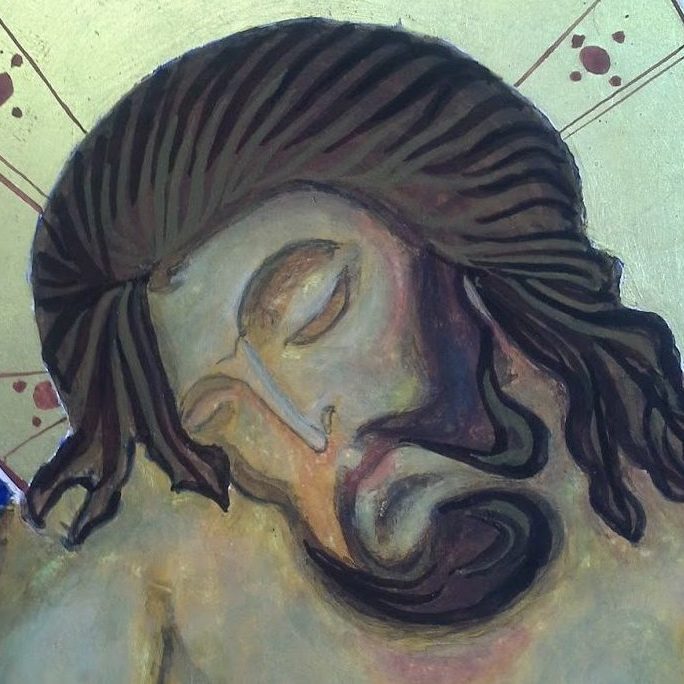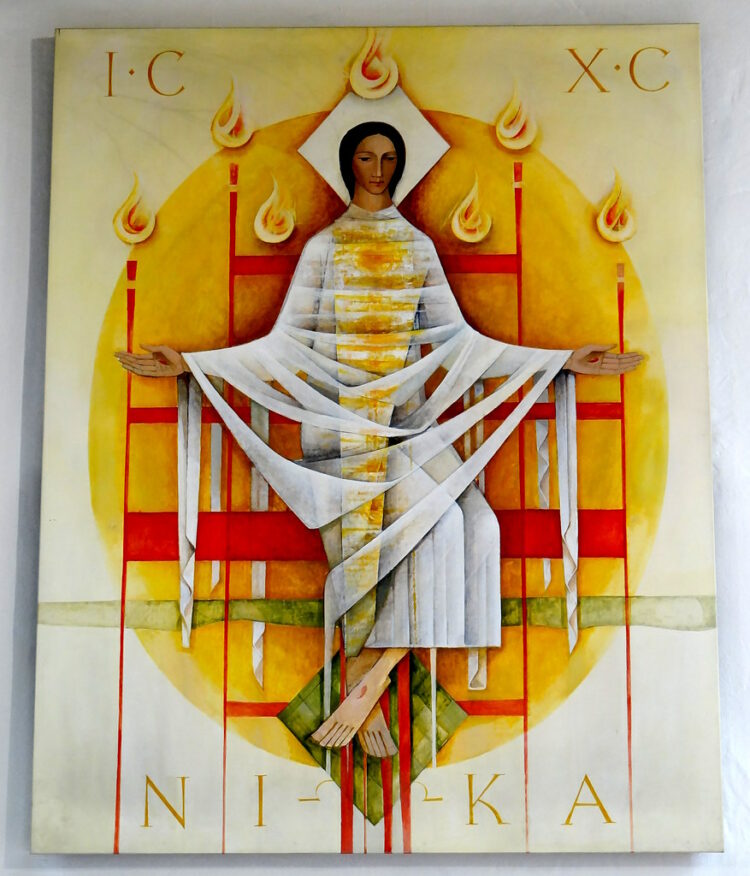Christ the King 2022
So, the shops are full of baubles and tinsel and Christmas cards and huge foil dishes for roasting turkey. It doesn’t feel quite as over the top as it has in the past – I think the supermarkets have worked out that we won’t have as much money to spend this year. Nevertheless, there is no doubt that Christmas is on the horizon. And in the midst of all this, today the church sets St Luke’s account of the crucifixion for us to read – something which we would really expect on Good Friday. What on earth is going on? We are preparing for Jesus’ birth, and yet today we read of his death. Why?
Well, today is the final Sunday of the Kingdom Season, the Feast of Christ the King. It is also the final Sunday of the Church’s year: next Sunday, Advent Sunday is the Church’s new year. If you think about Advent, it is, amongst other things, a season of expectation and hope. And today, the end of the Church’s year, we celebrate the consummation of that hope: today we proclaim that Christ is King – the universal sovereign.
But the figure of the crucified Jesus, hanging between thieves probably wouldn’t be most people’s first choice of what a King is like. We are more likely to think of gold crowns and sparkling thrones, sumptuous ceremonial clothing, or at least a tailor made suit, a warm tweed overcoat and smart shoes: this year we have a King in the UK for the first time in many years, but King Charles’ image and the image portrayed in the Gospel today don’t really come near each other.
There are images of Christ reigning in Glory: we tend to associate them with Ascension Day when we specifically celebrate Christ taking his place at God’s right hand. And they are appropriate images for today as well. But, even in these images of the ascended Christ, if you look carefully you will almost always see the wounds in the hands which take us back to the crucifixion. If you look at the image on the front of today’s service sheet of the beautiful hanging found in the Jesus Chapel in Blackburn Cathedral, you can clearly see the wounds on the hands. So, even in glory, Christ the King carries the marks of the nails.
Which brings us back to today’s Gospel where we read: If you are the King of the Jews, save yourself!” There was also an inscription over him, “This is the King of the Jews.” The taunting of the soldiers ‘‘IF you are the King of the Jews, save yourself, reveals their doubts – they clearly thought this man was some kind of jumped up delusional would-be messiah. But the inscription is full of irony – it was probably written in the same jeering spirit in which the taunts were voiced, but it says what it says. For Christians, it speaks the truth – here is the King of the Jews, the Messiah.
There are echoes here, if we listen carefully, to the stories of Jesus’ birth – it was the Magi, the gentiles from the East who came looking for the King of the Jews, much to Herod’s alarm. Once again, what was found was unexpected – they went, naturally, to the palace, but the sought for king wasn’t there. They found him in a much humbler dwelling – we tend to assume they found him in the stable although this isn’t specified. Whether or not Mary and Joseph had found more suitable accommodation before the Wise Men arrived, it certainly still wasn’t where you would expect to find an infant King. Again, this mismatch of expectations.
So, we clearly have a very different kind of King. The Magi found the King of the Universe who had humbled himself and taken human flesh; the poverty of the place where they found Jesus is supposed to echo this descent from the realms of glory to humility and humanity – both words denoting earth, dirt – compost, if you like. In these birth stories, Luke is telling us that God has come to dwell with ‘us’, to dwell with the ordinary folk, the poor folk, and, perhaps especially, those far from home.
And then, on the cross, we find Jesus hanging between two self-confessed thieves. Jesus with the lowest of the low. Jesus with the outsiders. In fact, the only people who seem to understand Jesus’ Kingship in the Gospels are Gentiles – outsiders. There is a warning for us here: we are the insiders of the Christian faith – the ones who gather in church. We have to be careful not to miss Christ the King as he comes among us because we’re looking in the church when he’s likely to be ‘out there’ – in the wrong place again.
Christ our King is one who has plumbed the depths of human experience. There is no place too poor for him to have missed, and no experience too painful to be beyond his knowing. There is no-one beyond the reach of his love: today we see someone coming to Christ in sorrow for wrongdoing and being promised a place in paradise. In Jesus’ ministry we see that it is those assured of their own righteousness and goodness who tend to be on the receiving end of Jesus’ rebukes and criticism. Again, we must beware. In the Kingdom of God a little humility goes a long way!
This brings us to the final theme of Christ the King: that of judgement. In this, today’s feast prefigures Advent for its focus on preparation is overlaid with portents of judgement: Christ comes among us at Christmas, but when he comes again, it will be to judge the world. I suspect that we will be judged by the priorities that Jesus made clear in his ministry – by our care for those on the edge, by our openness to finding Jesus in unexpected places and by our recognition of him when he comes to us from the outside. And so we will pray, shortly, that we will be stirred up – that our wills will be disrupted, that our routines will be interrupted so that we will be ready to greet our unexpected King when he comes, whenever he comes.
Amen
Tweet
